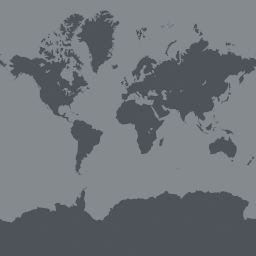Data collected by researchers studying arachnids and reptiles in Zimbabwe's protected areas as well as the country's edible insects will add about 9,000 records in six datasets through this project. Drawing from the collections of the Natural History Museum of Zimbabwe, Bulawayo (NHMB).
The target species are useful bio-indicators of habitat, so documenting them helps understand habitat loss, grazing, deforestation and hunting on the edges of protected areas. Digitization of data contained in the NHMB manual catalogues will add to the available historical and current knowledge of diversity and species richness as well as the effects induced by climate and humans. Edible insects’ diversity is still poorly documented, an additional dataset would be much appreciated. The 52 species identified in NHMB's collection are only a fraction of all 524 edible insects recorded in Africa. However, most of the edible insect data is not in publicly accessible or in standardized databases.
Taxonomic verification and distribution if availed will become basic tools for management of natural resources. This project begins the process of archiving and resource mapping by using an occurrence dataset and checklists. With past GBIF projects we have not made a strong case for the sustainability and monitoring plan for this data mobilization exercise, we intend in this grants exercise to activate structures such as the entomological association, spider club and herpetological association of Zimbabwe.
Project progress
On 26 – 27 May 2021 a Data Mobilization Workshop: Data Capturing, Cleaning, Quality, sharing was held at the Natural History Museum of Zimbabwe. This workshop was to train participants that were drawn from partners that will be involved in the 2021 to 2023 GBIF funded data mobilization BID project in their respective institutions. The aim of the workshop was to train participants on how to mobilize data for biodiversity with the same standards as required for the museum national collections.
Entomological Association was launched in December 2021 with a total of 23 members from various institutions across the country. In addition, the project completed 80% of the data mobilization and cleaning will continue up to December 2022.
The project digitized and mobilized data from Natural History Museum manual registers, to add 10533 occurrence records and 726 species records of arachnids, edible insects and reptiles on GBIF.
This was met and surpassed, by making 7 datasets accessible for researchers and policy makers.
- Data on arachnids and reptiles of protected areas was uploaded for researchers to access.
- The Entomological Association was successfully formulated and partners added.
- Inaturalist was successful in engaging the public in participating in adding photos of species to the Inaturalist database which added more than 40000 records during this project which was a 141% increase in data for the distribution of species.
- Engaging the citizens in citizens science has made the public interested in being part of the data collection for the understanding of our species citations for the country.
- The lessons learned include how involving the citizens can contribute to the better understanding of the distribution of species for Zimbabwe.
Post project activities will include putting up a permanent display of edible insects in one of the display galleries to educate the public on the importance of their contribution to food. Arachnids data digitization of the museum specimens records to continue being loaded on the GBIF platform and then after completion to publish a field guide. Herpetology to continue to digitize Zimbabwe data held in the Natural History Museum manual records and uploading on GBIF.




